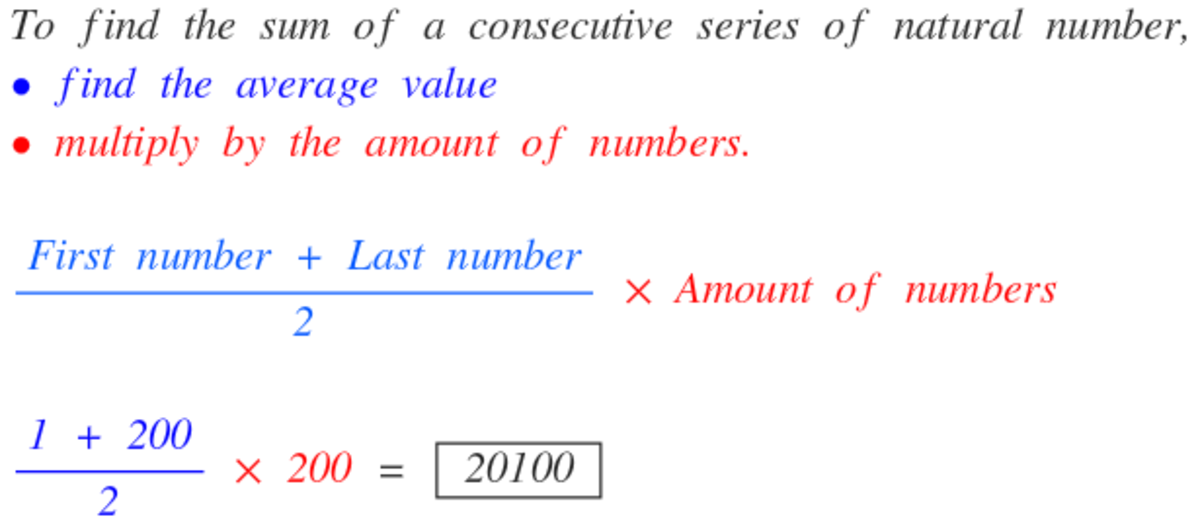Find the sum!
1 + 2 + 3 + 4 + . . . + 1 9 8 + 1 9 9 + 2 0 0 = ?
This section requires Javascript.
You are seeing this because something didn't load right. We suggest you, (a) try
refreshing the page, (b) enabling javascript if it is disabled on your browser and,
finally, (c)
loading the
non-javascript version of this page
. We're sorry about the hassle.
8 solutions
=200(200+1)/2
=40200/2
=20100
Relevant wiki: Arithmetic Progression Sum
It is an Arithmetic Progression with a common difference of 1 . The desired sum is
s = 2 n ( a 1 + a n ) = 2 2 0 0 ( 1 + 2 0 0 ) = 2 0 1 0 0
S = 2 n ⋅ ( a + l ) = 2 2 0 0 ⋅ ( 2 0 0 + 1 ) = 1 0 0 × 2 0 1 = 2 0 1 0 0
sum of this series
n(n+1)/2
in this case n is 200, so sum S will be
S = 200(200+1)/2
S = 20100
There is a simple formula for finding the sum of first n natural numbers.
2 n × ( n + 1 )
Thus, using this formula for n = 200, we get the answer 20100

the rule for consecutive integers is= 2 n ( n + 1 )
so, the summation is = 2 2 0 0 × 2 0 1 = 2 0 1 0 0